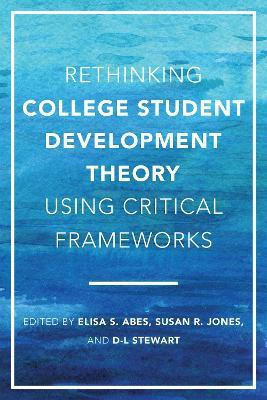Rethinking College Student Development Theory Using Critical Frameworks(English, Paperback, unknown)
Quick Overview
Product Price Comparison
A major new contribution to college student development theory, this book brings "third wave" theories to bear on this vitally important topic. The first section includes a chapter that provides an overview of the evolution of student development theories as well as chapters describing the critical and poststructural theories most relevant to the next iteration of student development theory. These theories include critical race theory, queer theory, feminist theories, intersectionality, decolonizing/indigenous theories, and crip theories. These chapters also include a discussion of how each theory is relevant to the central questions of student development theory. The second section provides critical interpretations of the primary constructs associated with student development theory. These constructs and their related ideas include resilience, dissonance, socially constructed identities, authenticity, agency, context, development (consistency/coherence/stability), and knowledge (sources of truth and belief systems). Each chapter begins with brief personal narratives on a particular construct; the chapter authors then re-envision the narrative's highlighted construct using one or more critical theories. The third section will focus on implications for practice. Specifically, these chapters will consider possibilities for how student development constructs re-envisioned through critical perspectives can be utilized in practice. The primary audience for the book is faculty members who teach in graduate programs in higher education and student affairs and their students. The book will also be useful to practitioners seeking guidance in working effectively with students across the convergence of multiple aspects of identity and development.


